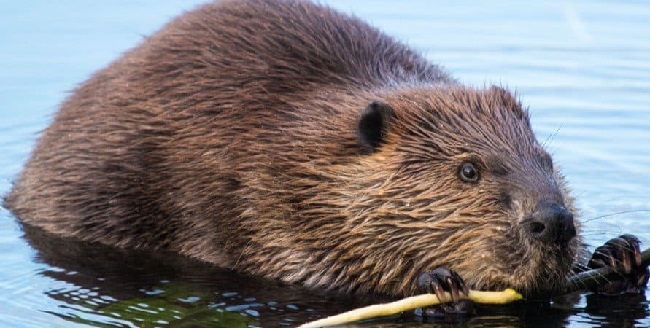Beavers are fascinating creatures known for their industrious nature and architectural prowess. But do these attributes make them suitable pets?
This comprehensive guide will delve into the various factors, including legality, ethical issues, and practical considerations, that prospective pet owners need to know about Beavers.

The Legality of Owning a Beaver as a Pet
Beavers are considered wild animals, and in many regions, owning one as a pet is illegal. Laws regarding pet ownership vary widely by country, state, and even local jurisdictions, so it’s essential to check local regulations before considering a Pet Beaver.
It’s important to remember that these laws are typically enacted to protect both humans and animals from potential harm.
Ethical Considerations
Beyond legal issues, it’s essential to consider the ethical implications of owning a Beaver as a pet. Beavers are not domesticated animals; they are adapted to live in the wild, not in human homes or backyards.
They have instinctual behaviors, such as dam-building and tree felling, that are vital to their wellbeing and impossible to accommodate in a domestic setting.
Practical Challenges of Beaver Ownership
Here are some challenges of owning a Beaver pet:
Habitat Needs
Beavers require a large aquatic habitat to thrive. They are most at home in rivers, streams, and ponds where they can swim freely, build dams, and forage for food.
Providing an adequate living environment for a Beaver in a domestic setting would be challenging, if not impossible.
Dietary Requirements
Beavers are herbivores that eat a variety of tree barks, aquatic plants, and roots. Providing the correct diet to ensure proper nutrition and fulfill their instinctual need to gnaw can be difficult and costly.
Health and Lifespan
Beavers require specialized veterinary care, which can be hard to find and expensive. Additionally, in the wild, Beavers can live up to 24 years, so adopting a Beaver is a long-term commitment that should not be taken lightly.
Are There Alternatives?
For those enchanted by Beavers, there are ways to interact with these creatures without keeping them as pets. Consider volunteering at a local wildlife rehabilitation center, where you might assist in caring for injured or orphaned Beavers.
Alternatively, “adopting” a Beaver through a wildlife conservation organization can provide financial support to these animals in their natural habitat.
Key Takeaways
- Owning a Beaver as a pet is often illegal and always presents ethical concerns.
- Beavers have specific habitat, dietary, and health needs that are difficult to meet in a domestic setting.
- There are alternative ways to enjoy and support Beavers without keeping them as pets.
In a nutshell, while Beavers are remarkable creatures, they are best appreciated in their natural habitats rather than in our homes.
By respecting their wild nature and supporting conservation efforts, we can help ensure these amazing architects of the animal kingdom continue to thrive.
Conclusion
While Beavers are intriguing and endearing animals, they are not suitable as pets due to legal constraints, ethical considerations, and the significant challenges in meeting their unique needs in a domestic environment.
Instead of trying to turn these wild creatures into pets, we should focus on protecting their natural habitats and appreciating them from a distance.
























